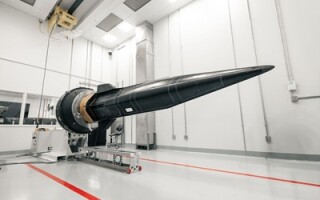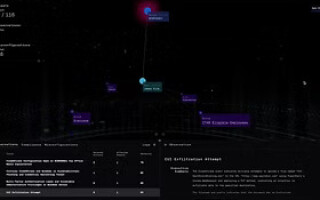Navy underwater drone gets major upgrade with COTS tech
NewsJanuary 14, 2015

Phoenix International Holdings, Inc. engineers finished an upgrade of the U.S. Navy’s Deep Drone remotely operated vehicle (ROV) which is capable of submerging to a depth of 8,000 feet. The upgrade consisted of installing a new umbilical, sonar, LED lighting system, high definition camera, an updated frame, and a new foam pack.
Phoenix experts also installed a new Programmable Logic Controller (PLC) based vehicle control system as the heart of the upgrade. The upgrade work was performed through a multi-year contract with the U.S. Navy’s Office of Supervisor of Salvage and Diving (SUPSALV).
This new PLC based control system was built to increase the vehicle’s bandwidth to add advanced sensors and bring intuitive, accessible functionality to enable ROV technicians to address common software related challenges such as installing and integrating new sensors to address specific operational requirements.
To enable increased bandwidth, the overall system design also has fiber optics all throughout the ROV and within the vehicle’s new umbilical. Other advantages the PLC based control system brings include enhanced maintainability and reliability due to the integration commercial off-the-shelf (COTS) components and software.
Along those lines the PLC based control system also has an extensive graphical user interface (GUI) for control and diagnostics with GUI screens. The GUI design effort focused on supporting rapid customization, such as data displayed, items controlled, and the layout of each GUI page. With the design in place, Phoenix experts began a step-by-step process to replace the ROV’s old control system with a PLC based control system.
First they developed the basic control system utilizing simulated digital inputs and outputs. Phoenix technical personnel then assembled and tested the whole system, including the ROV housed PLCs, vehicle control station, and maintenance van within a laboratory environment. Once laboratory testing was complete, the system was tested with the vehicle operating in Phoenix’s above ground vehicle test tank. The final test series of open ocean system tests were performed aboard the USNS Grasp (T-ARS-51) near Andros Island, Bahamas.
Once the upgrade was complete the Deep Drone was placed back into a mission-ready status.
For more information, visit www.phnx-international.com.




